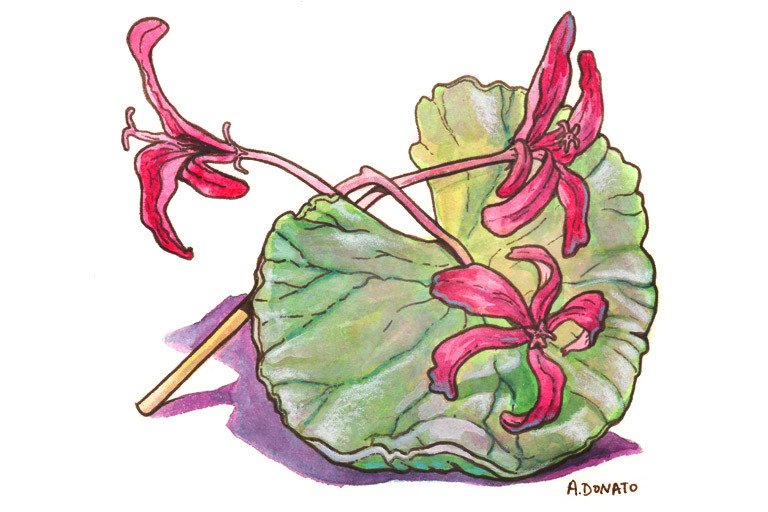
Common Names
- EPs 7630
For Patients & Caregivers
Tell your healthcare providers about any dietary supplements you’re taking, such as herbs, vitamins, minerals, and natural or home remedies. This will help them manage your care and keep you safe.
Pelargonium sidoides helps reduce cold symptoms.
Pelargonium sidoides is an herb that has been used in traditional medicine in South Africa for centuries. It is used in Europe to treat the common cold and bronchitis. In laboratory studies, this herb was shown to kill bacteria, viruses, and stimulate the immune system. Human studies show that it can reduce the symptoms of common cold and bronchitis.
-
Common cold
Several studies support use of P. sidoides in reducing symptoms. -
Bronchitis
Clinical trial data shows that P. sidoides is effective against acute and chronic bronchitis. -
Dysentery or Diarrhea
Although P. sidoides is used to treat dysentery in traditional medicine, there is no scientific evidence to back this claim.
- Allergies
- Gastrointestinal upset
- Ear and inner ear disorders
- Fever
- Diarrhea
- Restlessness
For Healthcare Professionals
Pelargonium sidoides is an herb that has been used in traditional medicine in South Africa for centuries to treat infectious respiratory disease, dysentery, and diarrhea. The root extracts are used in Germany for treating respiratory infections (1). Patients take supplemental forms to treat common cold and acute bronchitis. In vitro studies indicate that P. sidoides has antibacterial (2), antiviral (3) (16) (17) (18), immunomodulatory (4), and anti-adhesive (5) properties.
Data from clinical trials suggest effectiveness against acute bronchitis (6) (7) (8) (20) and against rhinosinusitis (9). Meta-analyses suggest a significant decrease in bronchitis symptoms with P. sidoides use (10) (21) and benefit in pediatric respiratory tract infections (19). An herbal preparation from P. sidoides root was found effective for moderate to severe chronic obstructive pulmonary disease (COPD) (15).
- Common cold
- Bronchitis
- Dysentery
- Diarrhea
Polyphenols (eg, catechin) and 7-hydroxy-coumarins (eg, umckalin), the main constituents, have antimicrobial and immunomodulatory effects (1). Other constituents include polymeric proanthocyanidins, monomeric flavan-3-ols, phenolic acids, and gallic acid as well as small amounts of quercetin and sitosterol-glucoside (5).
P. sidoides extract increased natural killer cell formation, tumor necrosis factor alpha, iNO, and interferon-beta release, and also demonstrated anti-adhesive effects (5). In addition, the extract improved peripheral blood phagocytes by enhancing oxidative burst and intracellular killing in vitro (11). Anti-HIV effects may occur through inhibiting the attachment of viral particles to target cells (17).